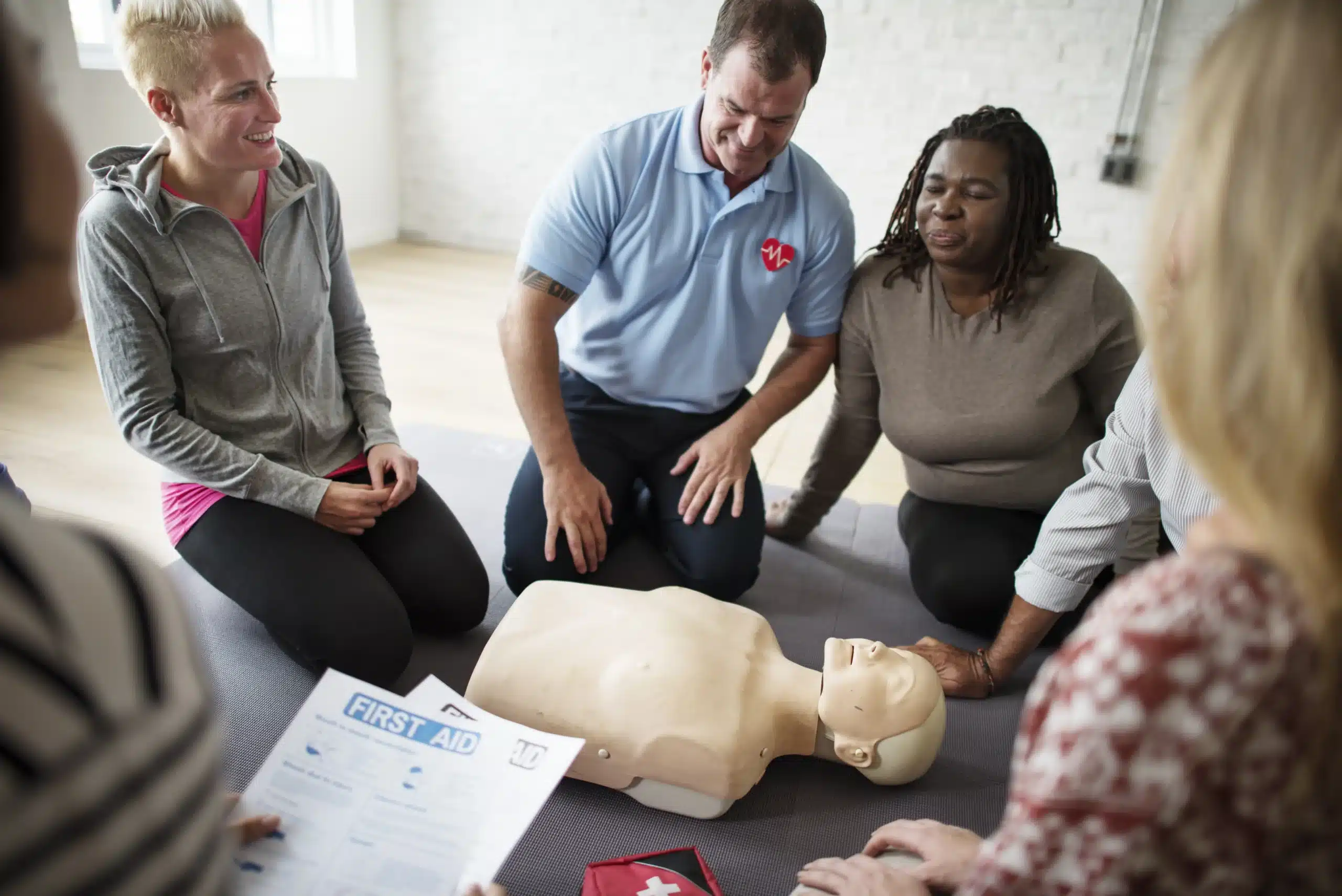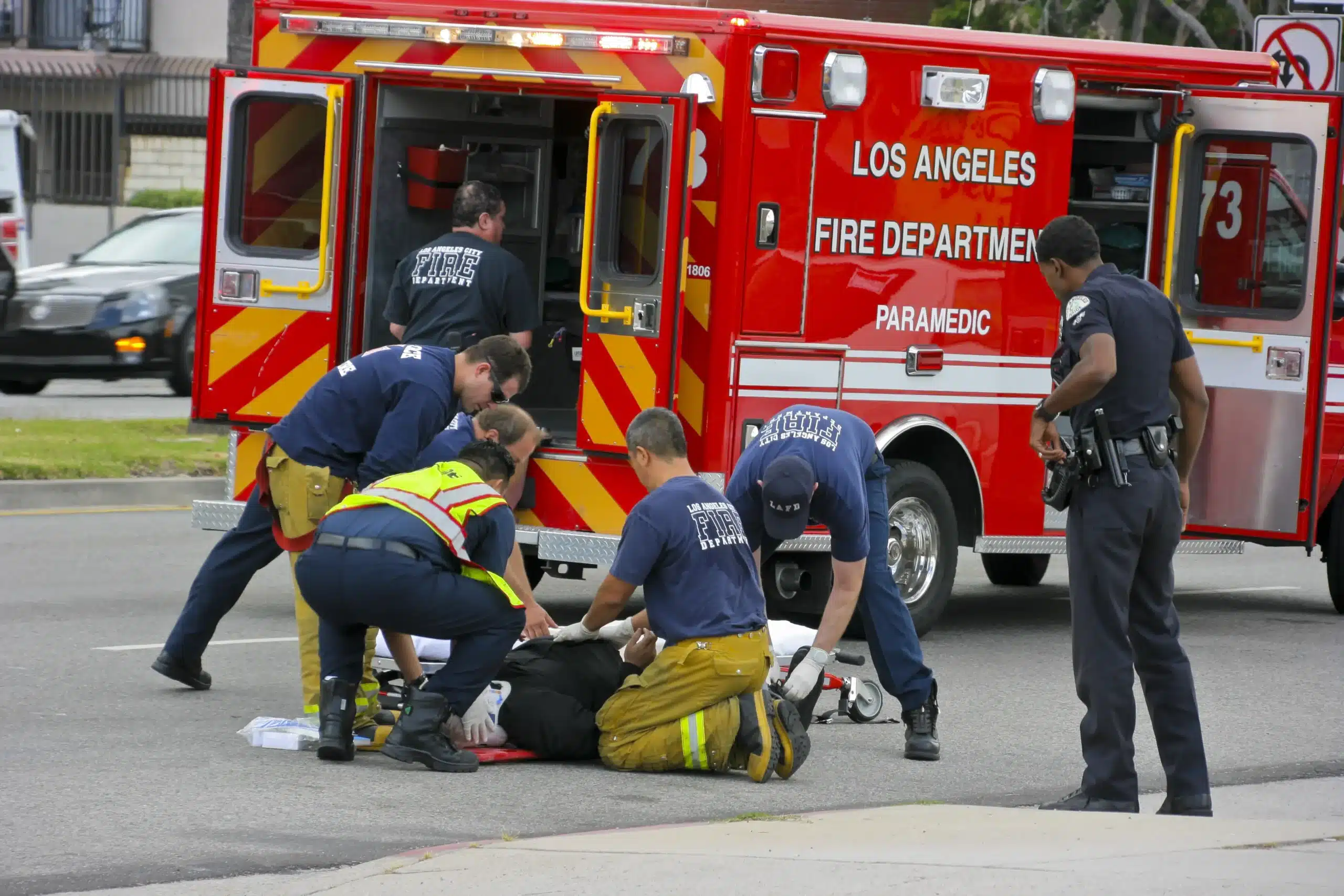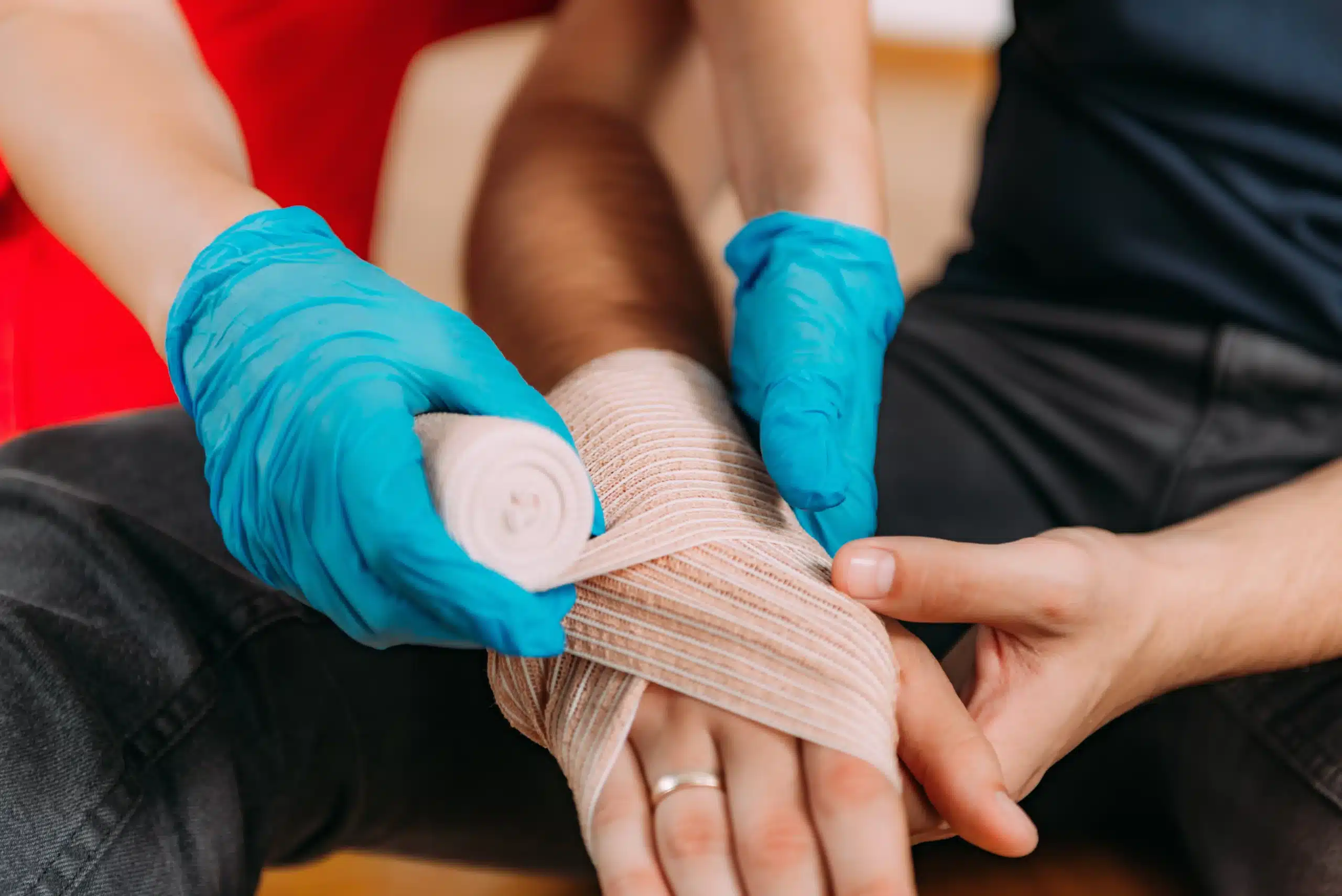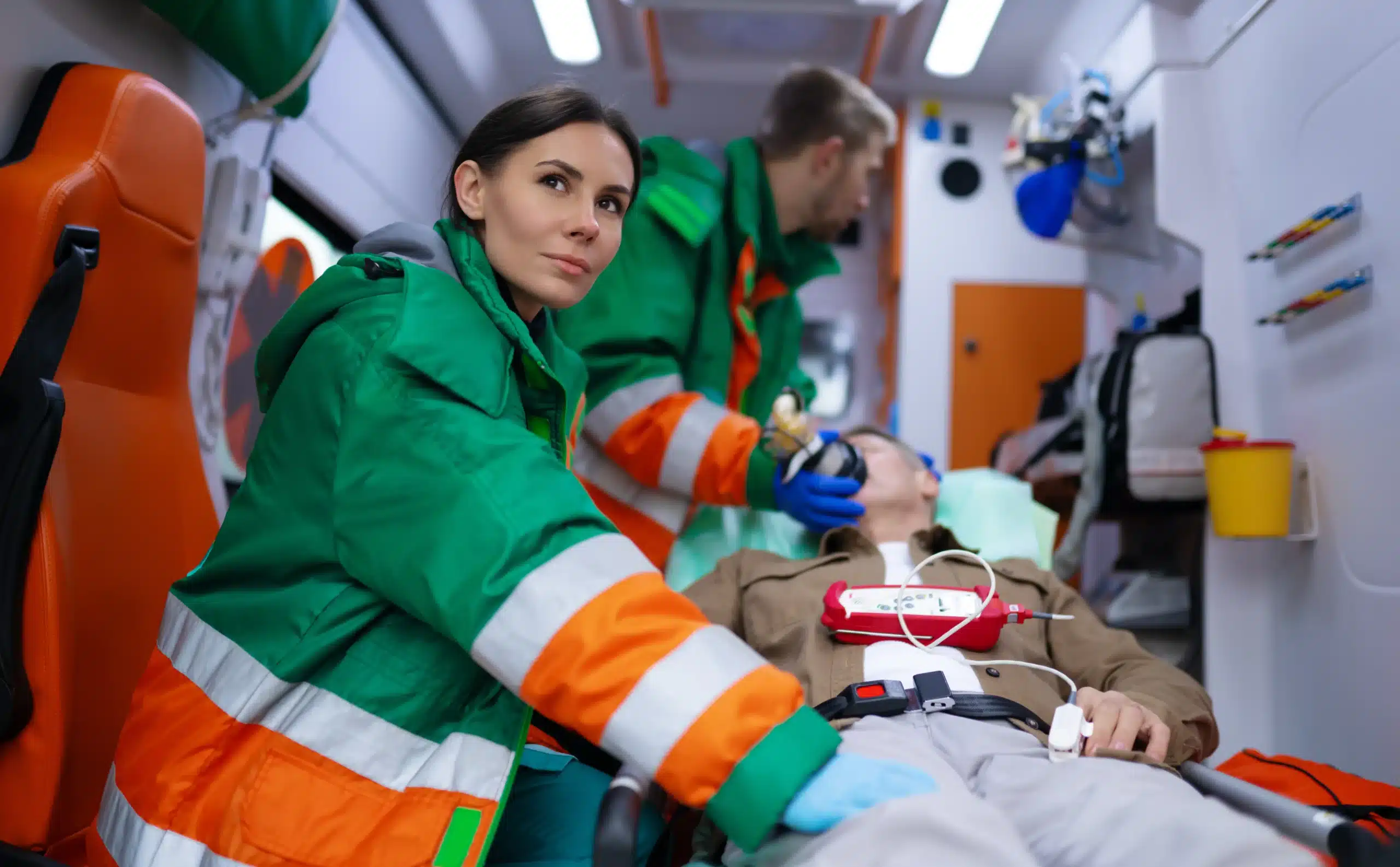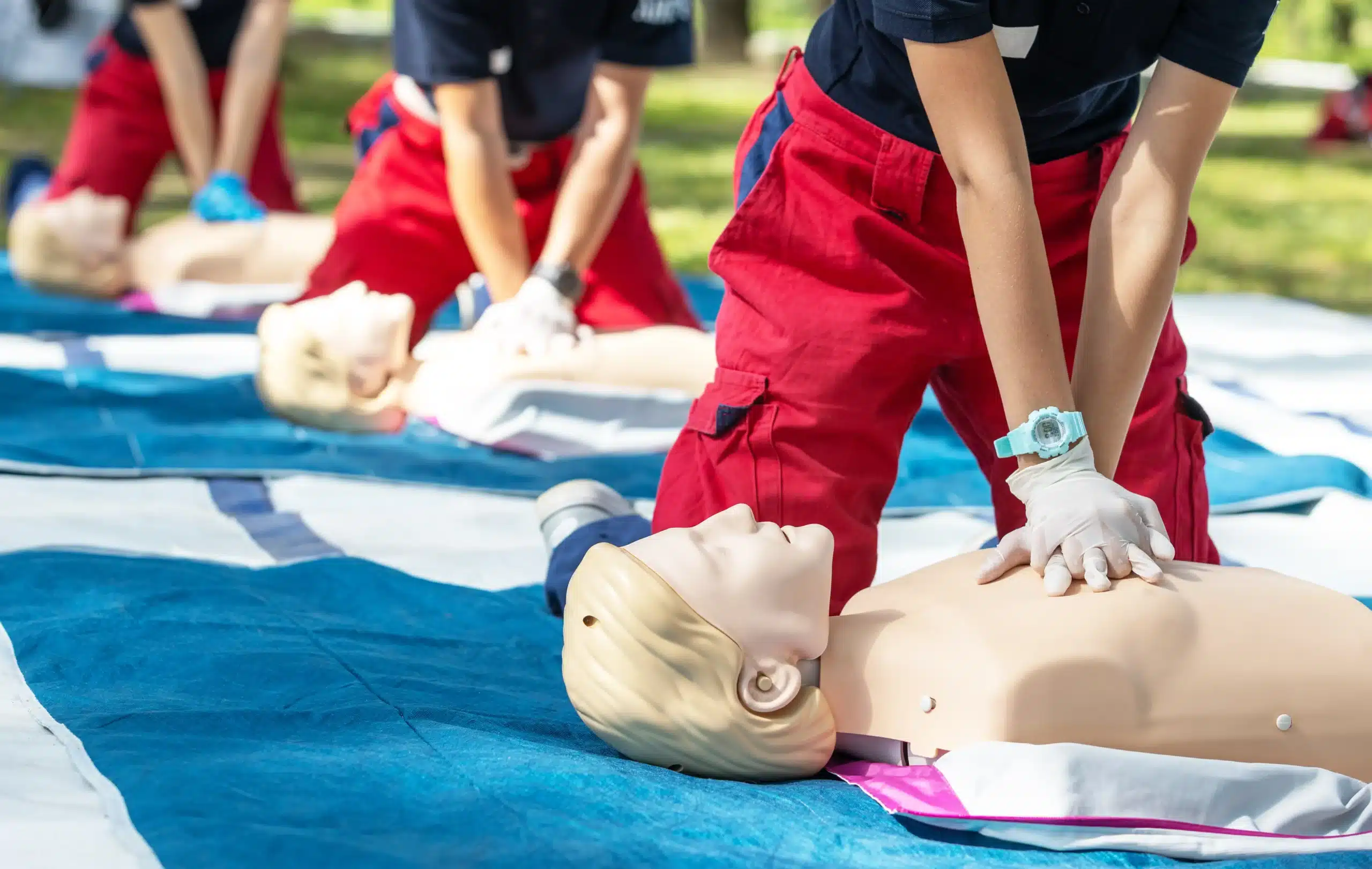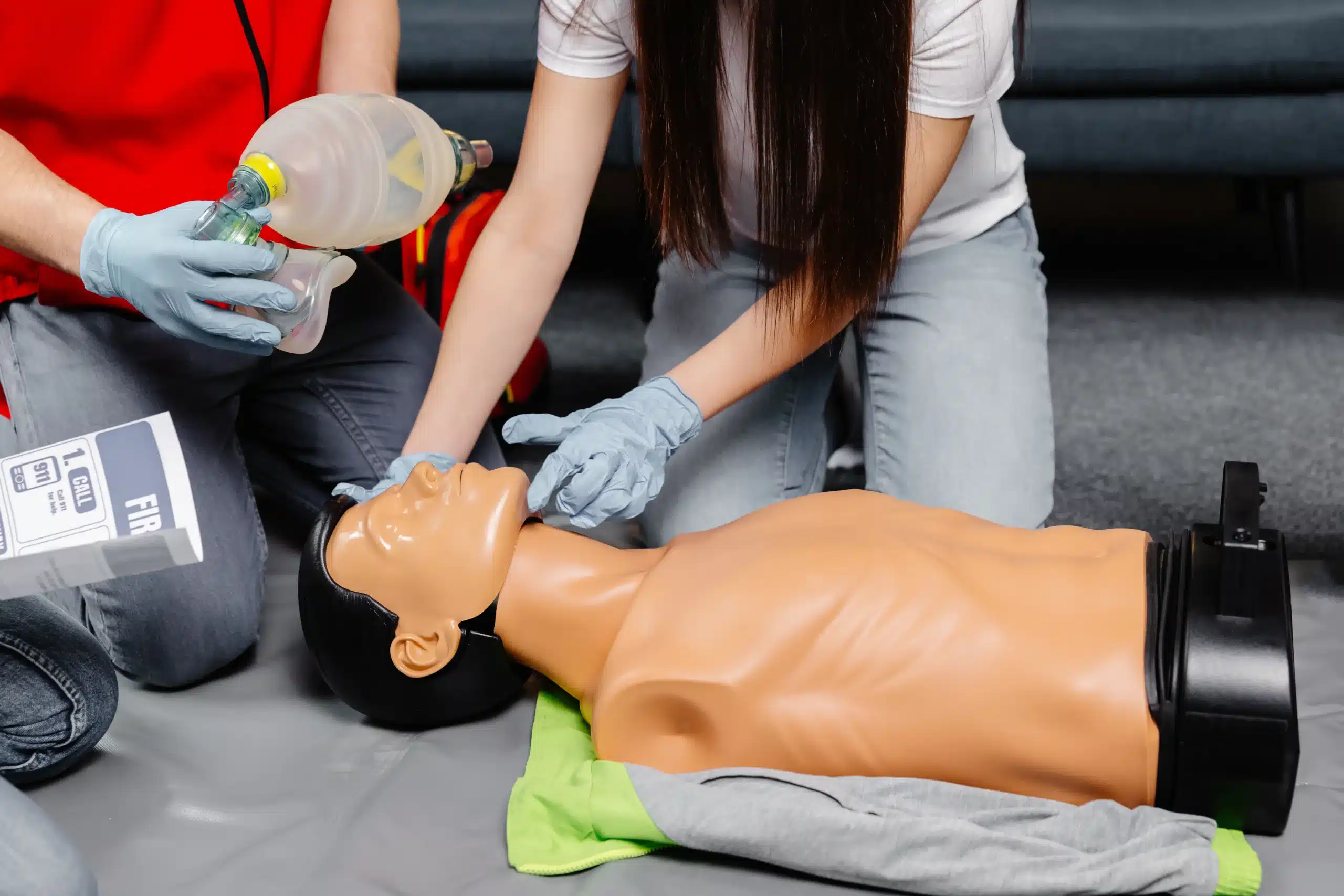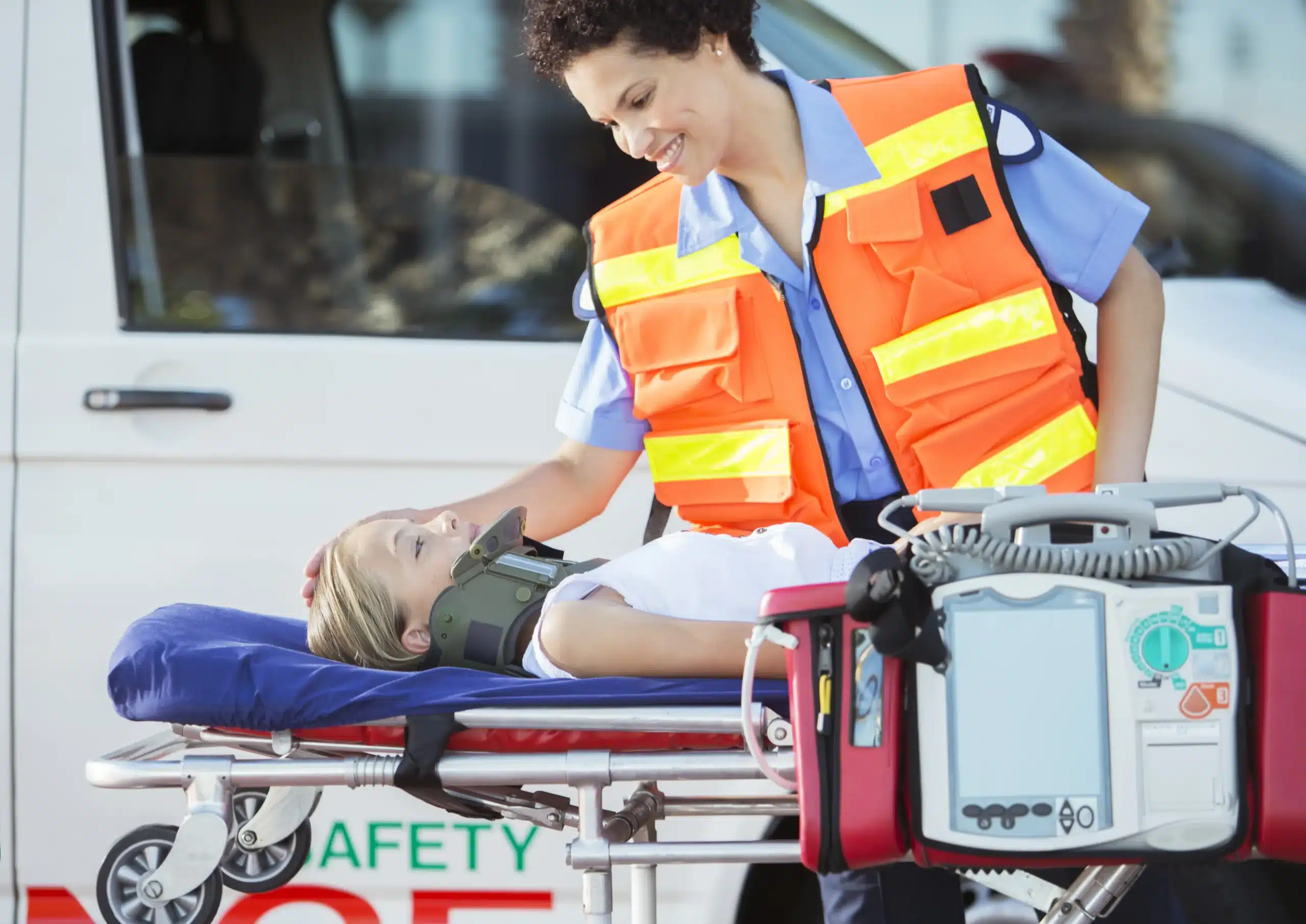As a healthcare provider, your skills can mean the difference between life and death. But let’s be honest, how often do you really practice your CPR skills outside of a biennial certification course? Traditional CPR training can sometimes feel like cramming for a test—you learn a lot at once, but then the information fades. RQI, or Resuscitation Quality Improvement, offers a fresh perspective. This method focuses on consistent practice to keep your skills sharp. If you’re in Clovis and looking to enhance your life-saving abilities, understanding RQI in Clovis is crucial. This article will guide you through the ins and outs of RQI, exploring its benefits and how it can transform your approach to CPR training.
Key Takeaways
- RQI keeps your CPR skills sharp. Short, frequent practice and personalized feedback build confidence and improve your responses in emergencies, offering a more practical approach than traditional CPR training.
- RQI blends online learning with hands-on practice. Learn at your own pace and fit training into your schedule. Simulation technology and real-time feedback enhance learning and prepare you for real-world situations.
- Find the right RQI program in Clovis for you. Fresno CPR Classes and other providers offer various programs for healthcare professionals, students, and community members.
What is RQI?
RQI stands for Resuscitation Quality Improvement. It’s a more modern approach to CPR training that focuses on continuous learning and skill mastery. Instead of one big class every two years, RQI uses short, frequent practice sessions to reinforce skills and build confidence. This helps healthcare providers and other CPR-trained individuals maintain their skills at a higher level, leading to better outcomes in emergencies.
What is RQI and how does it differ from traditional CPR?
One common misconception is that RQI covers less material than traditional CPR training. This isn’t the case. RQI programs, like those offered by Fresno CPR Classes, teach the same core CPR skills and knowledge, just in a different way. Traditional CPR training typically involves a longer, one-time class, whereas RQI uses shorter, more frequent practice sessions distributed throughout the year. This approach helps combat skill decay and ensures you’re always ready to respond effectively. It’s like learning a language – short, regular practice is more effective than cramming for a big test. You can learn more about our RQI offerings on our website.
How RQI Works
RQI uses a blended learning approach, combining online modules with hands-on practice and skills assessments. You’ll work through interactive lessons at your own pace, then complete short skills sessions on a manikin that provides real-time feedback. This combination of online learning and hands-on practice makes RQI a flexible and convenient way to stay up-to-date on your CPR skills. RQI classes often incorporate realistic simulations to help you prepare for real-world emergencies.
Real-time feedback and performance tracking
One of the key advantages of RQI is the use of real-time feedback. During the hands-on skills sessions, the manikin provides immediate feedback on your compressions, ventilations, and overall performance. This allows you to identify areas for improvement and adjust your technique on the spot. The system also tracks your performance over time, so you can see your progress and identify any areas where you might need additional practice. This personalized feedback is invaluable for building confidence and ensuring you’re always performing at your best.
RQI Programs in Clovis
RQI isn’t a one-size-fits-all program. It offers different levels to meet various needs. Whether you’re just starting your healthcare career or you’re a seasoned professional, there’s an RQI program designed for you. Here’s a look at the RQI programs available in Clovis:
CPR RQI: Master Basic Life Support
This foundational program focuses on core CPR skills. Using simulation technology, CPR RQI provides real-time feedback on your chest compressions and rescue breaths, helping you develop muscle memory and confidence. This program is ideal for anyone needing to learn or refresh their basic life support skills—from healthcare providers and first responders to community members and students. Fresno CPR Classes offers BLS certification courses that align with the American Heart Association guidelines. For those looking for affordable options, check out our low price guarantee.
ACLS RQI: Advanced Cardiovascular Care
ACLS RQI builds upon the basics of CPR for healthcare professionals dealing with advanced cardiovascular emergencies. It covers a broader range of skills, including airway management, rhythm recognition, and pharmacology. The program’s emphasis on regular practice and assessment ensures you’re prepared to handle complex cardiac situations. Contact us to learn more about ACLS training options. We offer group discounts for organizations looking to train multiple staff members.
PALS RQI: Pediatric Life Support Expertise
PALS RQI focuses on the unique needs of infants and children in medical emergencies. This program is designed for healthcare providers and covers specialized training in pediatric resuscitation techniques. Like other RQI programs, PALS RQI uses simulation and real-time feedback to reinforce learning and improve performance. Explore RQI classes offered by Fresno CPR Classes.
Benefits of RQI Training in Clovis
RQI training offers several advantages for healthcare providers and anyone looking to maintain their life-saving skills. Let’s explore some key benefits:
Improve Skill Retention Through Continuous Learning
Traditional CPR training often involves infrequent, lengthy sessions, which can lead to skill decay over time. RQI takes a different approach, providing short, frequent training sessions that reinforce essential skills and knowledge. This method, consistent with the latest American Heart Association (AHA) guidelines, helps healthcare providers in Clovis maintain their CPR skills and confidently deliver effective CPR during cardiac arrests. The continuous learning model of RQI helps build muscle memory and ensures you’re always ready to respond. Fresno CPR Classes offers RQI courses designed to fit your busy schedule.
Enhance Patient Outcomes with Realistic Simulations
RQI training goes beyond traditional CPR courses by incorporating realistic simulations. These simulations provide valuable practice in a safe environment, allowing you to hone your skills without the pressure of a real-life emergency. Real-time feedback during these simulations helps you identify areas for improvement and perfect your technique. This focus on practical application translates to improved patient outcomes in real-world scenarios. By practicing with realistic simulations, you’ll gain the confidence and competence to handle emergencies effectively. Contact us today to learn more about our simulation-based training.
Flexibility and Convenience
We understand that healthcare professionals have demanding schedules. RQI recognizes this and offers a flexible learning format. The program combines self-directed online learning with hands-on practice at skills stations. This blended approach allows you to learn at your own pace and fit training seamlessly into your busy schedule. You can complete the online modules whenever and wherever it’s convenient for you, then schedule hands-on practice sessions at a time that works best. This flexibility makes RQI training in Clovis accessible to everyone, regardless of their schedule. Check out our flexible scheduling options.
Objective Assessments and Continuous Skill Checks
RQI uses simulation technology to objectively assess your CPR skills. This technology monitors your psychomotor skills and provides detailed metrics, offering a clear picture of your strengths and weaknesses. Continuous skill checks throughout the program ensure you’re consistently improving and maintaining your proficiency. This data-driven approach allows for personalized feedback and targeted training, helping you achieve mastery of essential CPR techniques. With objective assessments, you can track your progress and identify areas where you can further develop your skills. For more information on our RQI program and its benefits, visit our RQI page.
Cost of RQI Training in Clovis
When considering RQI training, understanding the costs is essential. Let’s break down the pricing structure for individuals, groups, and the long-term value.
Individual Program Pricing
RQI training in Clovis is competitively priced, especially considering the high-quality instruction and value. At Fresno CPR Classes, BLS certification is $80, ACLS is $100, and PALS is similarly priced. These rates make these crucial skills accessible to everyone from healthcare providers to community members. For more pricing and scheduling details, check out our BLS course page.
Group Discounts and Packages
Training a team? Many RQI providers, including Fresno CPR Classes, offer group discounts. This significantly lowers the per-person cost, making it economical for organizations, businesses, or even groups of friends. Contact us to discuss the best options for your group.
Long-Term Cost-Effectiveness and ROI
While there’s an upfront investment, consider RQI’s long-term cost-effectiveness. The emphasis on frequent, short practice sessions improves skill retention, meaning less time and money spent on refresher courses compared to traditional CPR training. One study found training 350 learners annually with RQI cost around $14,000, a more efficient model than traditional BLS. This ongoing training saves money and ensures providers maintain their skills. For a cost-effective and convenient way to maintain CPR skills, our RQI classes are an excellent option. We also offer a low price guarantee.
Enroll in RQI Training in Clovis
Ready to take the next step and enroll in Resuscitation Quality Improvement (RQI) training? Great! This section walks you through the process, highlighting the flexible options available for individuals and groups in Clovis.
Step-by-step Enrollment Process
Enrolling in an RQI course with Fresno CPR Classes is straightforward. Visit our RQI classes page to see the programs we offer, including information on BLS, ACLS, and PALS RQI courses. Once you’ve chosen the right course, select a date and time that works for you from our daily classes. After selecting your class, complete a short registration form and securely submit your payment. You’ll then receive a confirmation email with all the details, including directions to our Clovis training center.
Flexible Scheduling Options
We understand healthcare professionals have demanding schedules. That’s why we offer various scheduling options for RQI training, including evenings and weekends. RQI uses a blended learning approach, combining online modules with in-person skills sessions. This allows you to complete the cognitive portion at your own pace and schedule a convenient time for your hands-on skills evaluation at our Clovis location. This flexible format makes it easier to fit RQI training into your busy life.
Group Training for Organizations
Need to train your entire team? We offer group discounts for RQI certification. Contact us to discuss your organization’s needs, and we’ll create a customized training plan. We can conduct training on-site at your facility or at our Clovis training center. Group training is a cost-effective and efficient way to ensure your team maintains high resuscitation care standards.
Common RQI Misconceptions
RQI Comprehensiveness and Effectiveness
One common misconception about RQI is that it’s less comprehensive than traditional CPR training. This just isn’t true. RQI covers the same core material and skills, just in a more digestible and sustainable format. Think of it as learning the same language, but with a different teaching method. Traditional CPR training often involves cramming a lot of information into a single session, which can feel overwhelming. RQI, on the other hand, breaks the material down into smaller, more manageable chunks, making it easier to absorb and retain. This approach ensures you’re not just memorizing steps, but truly understanding the principles behind high-quality CPR. For a deeper look into RQI’s methodology, check out this informative article on RQI training.
Debunking Myths about Program Difficulty
Another misconception is that RQI is difficult. The reality is RQI is designed to be user-friendly and accessible. The program uses a variety of learning tools, including online modules, simulations, and hands-on practice, to cater to different learning styles. This blended learning approach makes it easier for participants to engage with the material and retain the skills. The flexible nature of RQI allows you to learn at your own pace and fit the training around your schedule. So, if you’re worried about the difficulty, rest assured that RQI is designed with you in mind.
Skill Decay and Ongoing Practice
We all know that skills fade if we don’t use them regularly. This is especially true for CPR. Research shows that healthcare providers’ CPR skills can decline within weeks or months after traditional biennial training. This highlights the importance of ongoing practice. RQI addresses this by providing continuous learning and assessment. Regular practice and refreshers ensure that your skills stay sharp and you’re always prepared to respond effectively in an emergency. This consistent reinforcement is a key advantage of RQI, helping you maintain confidence and competence in your life-saving abilities.
RQI Providers in Clovis
Finding the right RQI provider is key to a successful learning experience. Here’s a breakdown of options available in Clovis:
Fresno CPR Classes
Fresno CPR Classes offers a comprehensive range of RQI courses, including BLS, ACLS, and PALS RQI. They emphasize hands-on training with simulation technology, providing real-time feedback to help you perfect your skills. This personalized approach, combined with their commitment to low prices and convenient scheduling, makes them a popular choice. Fresno CPR Classes serves Fresno, Clovis, and Madera, and you can learn more about their RQI courses on their website. They also offer group discounts, making it an affordable option for teams.
American Heart Association Training Centers
The American Heart Association (AHA) sets the standard for CPR and resuscitation training. Many AHA-authorized Training Centers in and around Clovis offer RQI programs. These centers maintain high standards and often provide a range of courses to meet the needs of different healthcare professionals. The AHA website is a great resource if you’re looking for a program aligned with the latest AHA guidelines.
Local Hospitals and Medical Centers
Many hospitals and medical centers in and around Clovis offer RQI training programs for their staff and, occasionally, the community. These programs often use the latest simulation technology and provide a clinical learning environment. Contacting local hospitals directly or checking their websites is the best way to find out about available RQI opportunities. These programs can be a good option for those seeking training integrated with a clinical setting.
Related Articles
- RQI Classes in Fresno, CA – Fresno CPR Classes
- Why CPR Matters in Healthcare (And How to Get Certified)
- NRP Certification Fresno: Your Guide to Getting Certified – Fresno CPR Classes
- PALS HeartCode in Madera: Flexible Training Options – Fresno CPR Classes
- The Science Behind Effective CPR – Fresno CPR Classes
Frequently Asked Questions
What exactly is RQI and why is everyone talking about it?
RQI, or Resuscitation Quality Improvement, represents a shift in how we approach CPR training. It moves away from the traditional model of infrequent, large classes to a system of shorter, more regular practice sessions. This helps healthcare providers and others maintain their skills at a consistently high level, much like regular workouts keep you physically fit. It’s a more proactive approach to ensuring you’re always ready to respond effectively in a real emergency.
Is RQI as thorough as traditional CPR training?
Absolutely. RQI covers the same core CPR skills and knowledge as traditional programs. The difference lies in how it’s taught. RQI uses a blended learning approach, combining online modules with hands-on practice and real-time feedback. This allows for more personalized learning and helps reinforce skills over time. It’s not about cutting corners; it’s about finding a more effective way to learn and retain these life-saving skills.
How does the “real-time feedback” in RQI work?
RQI uses specialized manikins equipped with sensors that track your performance during practice sessions. These manikins provide immediate feedback on the depth and rate of your compressions, ventilation technique, and other crucial elements. This instant feedback helps you identify areas for improvement and adjust your technique right away, leading to faster skill mastery and increased confidence.
What if I have a busy schedule? How can I fit RQI training in?
RQI is designed with flexibility in mind. The online learning modules can be completed at your own pace, whenever and wherever it’s convenient for you. You then schedule shorter, in-person skills sessions at a time that works with your schedule. This blended learning approach makes RQI much more adaptable to the demands of a busy professional or personal life.
How much does RQI training cost, and is it worth the investment?
The cost of RQI training varies depending on the provider and the specific program. While there’s an initial investment, RQI offers long-term cost-effectiveness. The continuous learning model reduces the need for frequent refresher courses, saving you time and money in the long run. More importantly, the improved skill retention and confidence you gain through RQI are invaluable, making it a worthwhile investment in your professional development and your ability to provide high-quality care.
